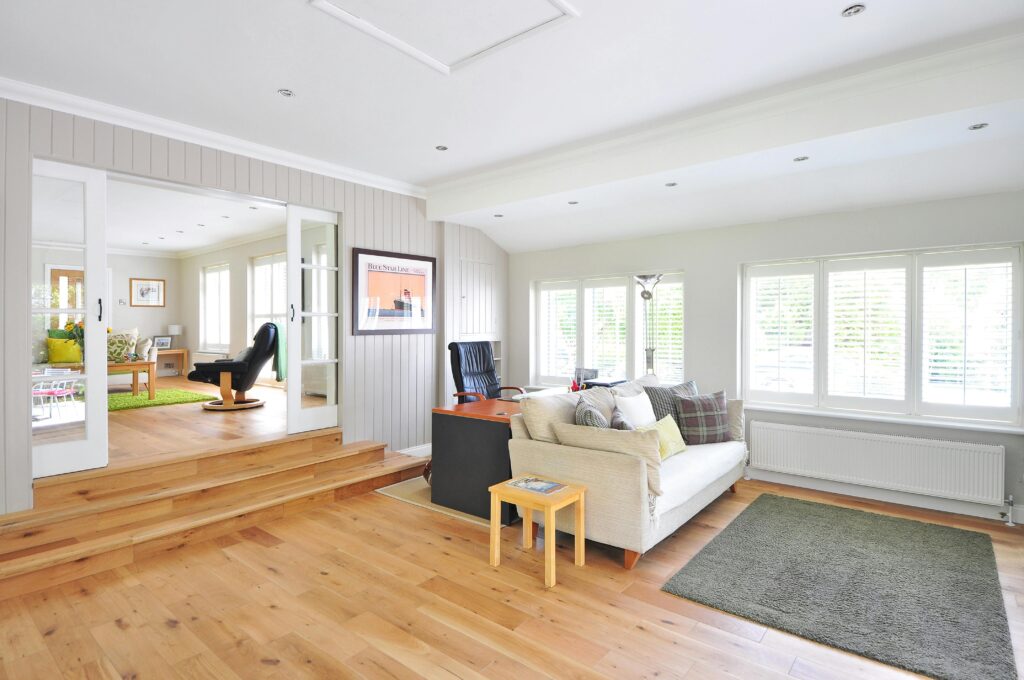It’s exciting to buy a house, but buying a brand-new house? That’s really exciting. Imagine that everything is brand new, shiny, and made just for you. But there are some things you should know before you start choosing paint colors and backsplash tiles. We at WJHpropertygroup have helped many buyers find their way through the maze of new builds, and now we’re giving you the road map.
Why New Construction Homes Are Booming
Let’s be honest: who wouldn’t want a house with modern features, systems that save energy, and no stress about fixing things up? That’s why there are more new homes on the market than ever, especially for first-time buyers and families that want to settle dow.
Who This Guide Is For
This guide is for anyone who wants to buy a new home, from the DIY-loving designer to the careful planner on a budget. Feel free to ask yourself, “How do I even start buying a new build?” You’re in the right place.
Step 1: Decide If New Construction Is Right for You
Pros of Buying New Construction
- Customization: Want quartz counters and an open kitchen? Done.
- Less energy use means lower utility bills and a greener way of life.
- Easy to Take Care Of: No more sudden repairs (at least for now).
- Builder warranties protect systems and structures, giving you peace of mind.
Cons to Consider Before Diving In
- Longer Wait Times: Building takes time, usually between 6 and 12 months.
- Upgrades cost more: That dream kitchen? It could cost you.
- Fewer chances to negotiate: Builders don’t often lower their prices like private sellers might.
Step 2: Get Pre-Approved for a Mortgage
Why pre-approval is so important
Get your money in order before you talk to a builder. Getting pre-approved for a mortgage shows that you are serious and lets you know how much you can really afford.
Tips for Finding the Right Lender
- Get quotes from at least three lenders and compare them.
- Find out if they work with people who want to buy new homes.
- If your house won’t be ready for a while, learn about their lock-in options.
Step 3: Choose the Right Builder
How Research Builder Is Known
- Not every builder is the same. Find these:
- Online reviews (Google, Yelp, and the Better Business Bureau)
- Buyer testimonials from the past
- The quality of past changes
Things You Should Ask Your Builder
- How long have you been building homes?
- What does the base price cover?
- Can I change how the floor plan looks?
Step 4: Learn about the different kinds of new custom homes
- Made just for you. You pick out every part. Usually takes longer and costs more money.
- Half-Custom Homes
A set of plans that you can change. This is where most buyers fall. - Spec (Ready to Move In) Homes that were already built by the builder. Not much or any customization, but you can move in faster and often for less money.
Step 5: Pick the Perfect Lot and Floor Plan
Place, Place, Place
- Your lot affects the value and way of life in the future. Question:
- Is it close to highways, schools, and stores?
Floor Plan Must-Haves
- Floor Plan Must-Haves Think about your way of life:
- Do you host parties? Keep your mind open.
- Have kids? Separate bedrooms could be useful.
- Like to cook? Spend money on a chef’s kitchen layout.
Step 6: Read the Builder’s Contract Carefully
Important parts of contracts you need to know
- As a rule, builders don’t use standard contracts. Instead, they make their own. Find these:
- Timeline for completion
- Fines for being late
- What happens if the materials are late?
Add-Ons, Upgrades, and What’s Included
Don’t think that the fancy model home is the real one. Question:
- What kind of finishes come standard?
- What does it cost more?
Step 7: Hire a Real Estate Agent (Even for New Builds!)
Why You Still Need Representation
- You should have a rep like the builders do. They can help with the following:
- Talking about upgrades
- Going over contracts
- Setting up inspection times
Agent vs. Builder’s Sales Rep
The builder’s agent does not work for you, but for them. Your agent is totally on your side.
Step 8: Schedule Independent Inspections
Yes, problems can happen in even brand-new homes.
It’s not always perfect just because something is new. Things go wrong. Have it checked out.
When to Schedule Inspections
- Pre-drywall
- Final walkthrough before closing
Step 9: Understand the Builder Warranty
What’s Covered & What’s Not
- 1 year for materials and work
- Two years for big systems like HVAC and plumbing
- 10 years for building problems
How to File Claims
- Keep all of your papers in a binder. If something goes wrong:
- Talk to the builder.
- Send in your claim in writing
- Follow up over and over.
Step 10: Prepare for Closing
Walkthroughs & Final Checks
- Confirm all upgrades are completed
- Look for cosmetic defects
- Test outlets, water, doors
What to Expect at Closing Table
- Final paperwork signing
- Paying closing costs
- Receiving keys (best part!)
In conclusion
While buying a new home is an exciting journey, it can also be tricky at times. It’s important to be ready for everything, from picking the right builder to knowing your contract inside and out. We at WJHpropertygroup believe that information is power, and now you have a lot of it to make smart choices about your dream new home.
FAQs
How long does it take to build a house?
Usually between 6 and 12 months, but it depends on how busy the builder is, the weather, and the availability of materials.
Can I talk to the builder about the price?
Sometimes. Builders are more likely to give extras or discounts than to lower the price.
Do I still need an inspection for a brand-new house?
Of course! What’s new doesn’t always mean it’s perfect. Problems are found during inspections before they become a big problem.
What are the incentives for builders?
Of these, perks like help with closing costs, free upgrades, or lower interest rates are given to make the deal more appealing.
Is it cheaper to buy a used house or a brand-new one?
It depends on the market and where the home is located, but new homes usually cost more up front but can save you money in the long run on energy and maintenance costs.

